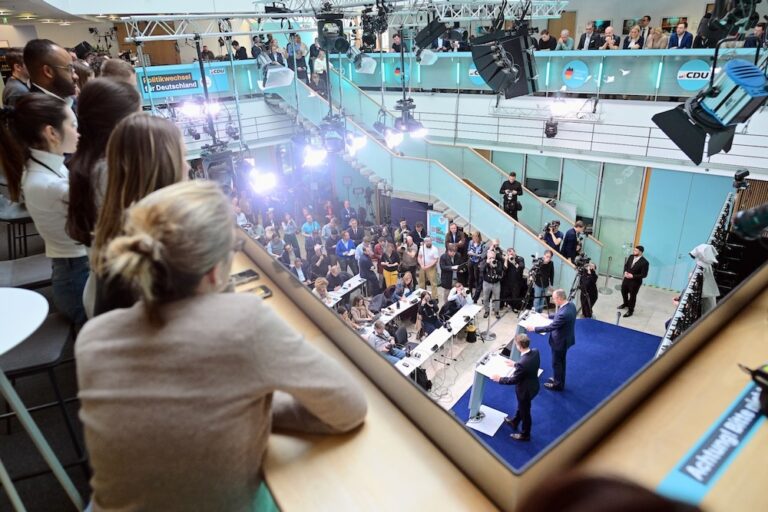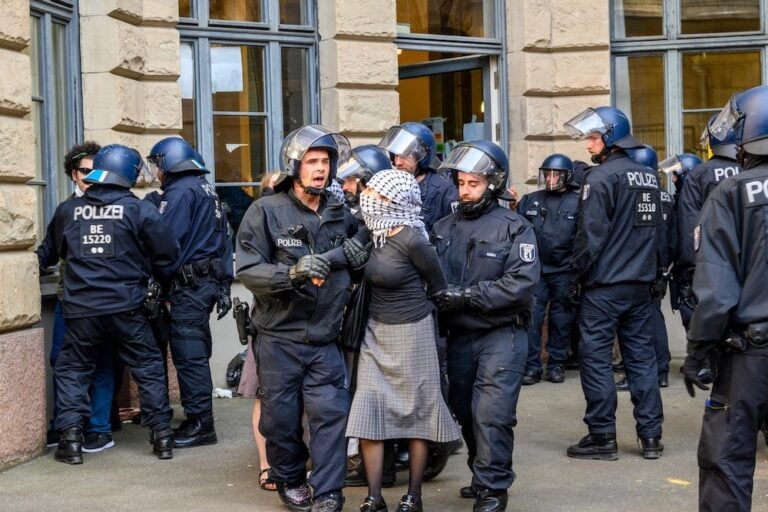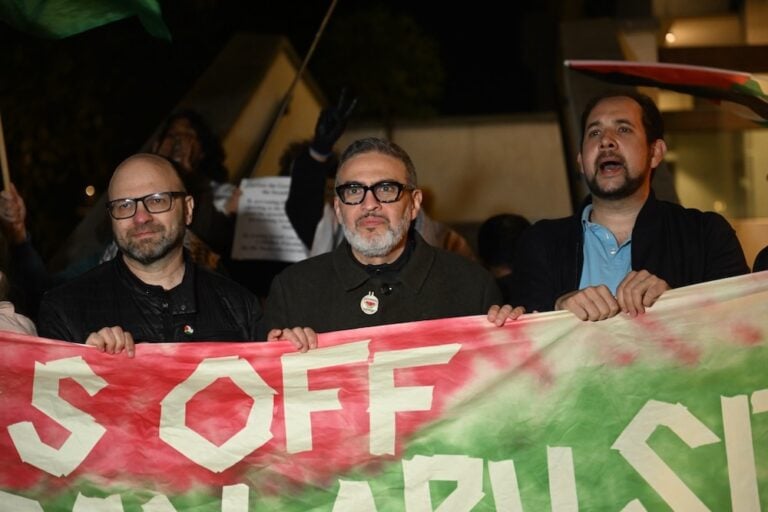The ZDF Administrative Council is expected to decide on the future of the broadcaster's editor-in-chief at a 27 November meeting.
(IPI/IFEX) – VIENNA, 24 November 2009 – Concerns are mounting in Germany over the political independence of public broadcaster Zweites Deutsches Fernsehen (ZDF), with the approach of a Friday 27 November Administrative Council meeting during which members will decide on the future of current editor-in-chief Nikolaus Brender.
Brender, an award-winning journalist with a reputation for staunch independence, has led the ZDF editorial team for nine years. His contract is due to expire in March 2010, although the broadcaster’s director-general, Markus Schächter, has clearly expressed his desire to see Brender’s term extended.
However, members of the station’s Administrative Council aligned with the union of Christian Democrats (CDU/CSU) have, since February of this year, made clear their intention to block Brender’s reappointment.
According to local media reports, Roland Koch, Prime Minister of the German State of Hesse (CDU) and a ZDF Administrative Council member, has rounded up a majority to vote against Schächter’s requested renewal of Brender’s contract.
Of the ZDF Administrative Council’s 14 members, nine are either active CDU/CSU politicians, or are aligned with the party.
Koch has stated that a drop in viewing figures for certain ZDF broadcasts is behind his wish to see Brender replaced. However, prominent journalists, media experts and jurists have variously described the move to stop the extension of Brender’s contract as an attempt to remove an editor-in-chief who refuses to buckle to political pressure, a massive political intervention in the public media, and an attack on media freedom.
Most recently, on Monday 23 November, a group of 35 renowned academics and constitutional experts published an open letter in which they described the bid to remove Brender as an “obvious attempt to force out an independent journalist and strengthen the influence of party politics” at ZDF, and therefore, the letter noted, a breach of Article 5 of the German Constitution, which guarantees the independence of the public media.
“Party political arguments, or party political attempts even, to influence the Administrative Council in the reappointment of ZDF editor-in-chief Nikolaus Brender through the broadcaster’s director-general, Markus Schächter, conflict with both the spirit and content of the ZDF statutes,” said Jörg Riebartsch, IPI Germany National Committee Chairperson and editor-in-chief of the daily Darmstädter Echo.
“For director-general Markus Schächter, the occupancy of the role of editor-in-chief is a key position in ensuring his responsibility for programming. It is for this reason that the right to choose lies with the director.
“Whether or not the editor-in-chief fulfils his duties is a judgement for ZDF’s Television Council, not the Administrative Council. Attempts to misuse the Administrative Council as an instrument to monitor programming represent not only a breach of the loyalty pledged to the organisation, but are also an open and clumsy attack on broadcasting freedom.”
IPI Director David Dadge said: “Germany has a strong constitution with a strong press freedom tradition and it is alarming to see a public service broadcaster such as ZDF fall prey (to) such overt attempts at political influence. The real danger is that this political manipulation will completely undermine the long-cherished credibility of ZDF, thereby undermining its public service commitment to providing independent news. If this were to happen, it could take years to regain the public’s trust.”


